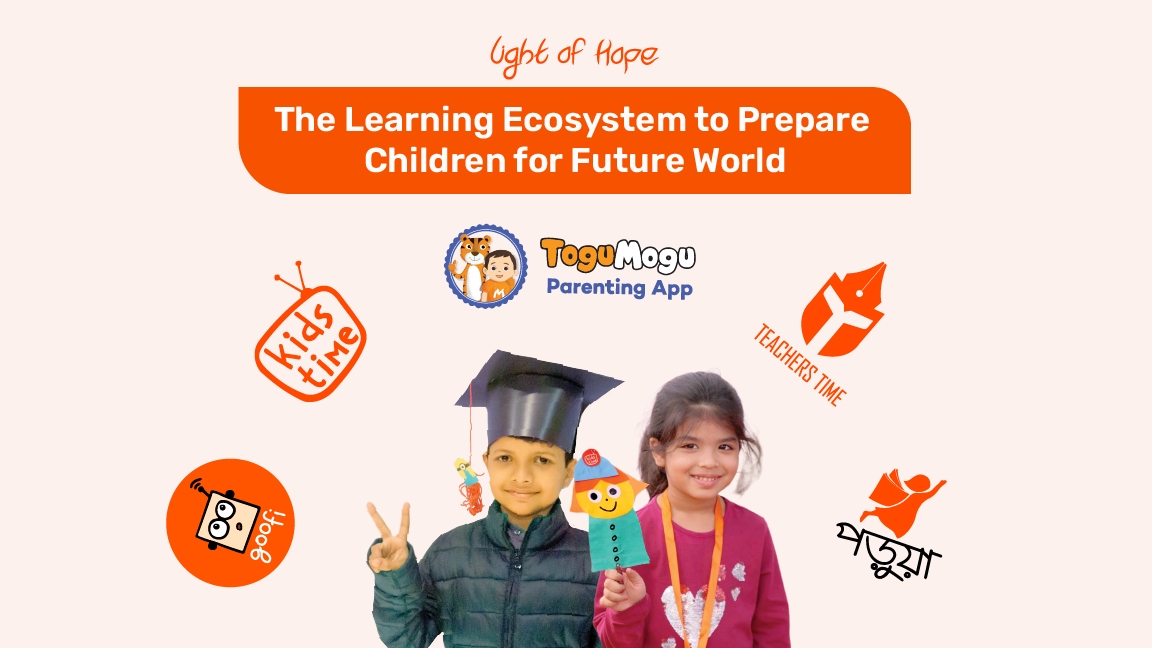
In the heart of Dhaka, Bangladesh, an education revolution is quietly unfolding. A group of visionaries armed with storybooks, toys, puppets, after-school programs, and an audacious dream is reimagining education. Welcome to the world of Light of Hope (LoH), a company that's redefining education in Bangladesh with the tenacity of a startup and the ambition of a global conglomerate. LoH operates on a simple yet revolutionary thesis: prepare children for tomorrow's challenges with enduring and timeless skills that are imperative for a successful career and meaningful life.
The thesis is the understanding that our children will inherit a vastly different world than the one we know today. In an era where artificial intelligence is reshaping industries, climate change is altering geopolitics, and the very nature of work is in flux, our children need radically different education to prepare themselves for the future.
Light of Hope recognizes that the traditional education system can’t and doesn’t focus on 21st-century skills. Preoccupation with the present and bureaucratic limitations that demand consensus limits their ability to do so. LoH, being a private organization, is free from these burdens and thus aims to fill this gap in the market.
LoH was founded in 2016 by Waliullah Bhuiyan and his friends. It is not your typical edtech or education startup. The company defies easy categorization and challenges the very notion of what education should be in the 21st century. If Disney's mission was to prepare kids for the future with the right skills, what would we call it? That's the question Bhuiyan poses, and it's the essence of what LoH aims to become.
The company wants to prepare our children for a world where rote learning is irrelevant and focuses on skills that machines can't replicate: creativity, problem-solving, emotional intelligence, and moral values.
These are not your regular hard and soft skills that may go out of fashion with the change of technology in the market. These are enduring skills that were relevant 50 years ago, are in demand today, and will remain equally if not more, relevant 50 years from now. Life is a creative problem.
But education is a hard problem that can’t be solved with rhetoric alone. Moreover, LoH has to overcome real challenges: entrenched mindsets, limited resources, and the Herculean task of scaling quality education in one of the world's most densely populated countries.
In response, LoH has taken an approach materially different from the common edtech startup playbook—preoccupy yourself with ever more flashy apps and tech prowess. Instead, LoH blends traditional storytelling with a distinct and deeply researched pedagogical and learning philosophy. It then reinforces the whole thing by building an ecosystem of learning initiatives that span from colorful storybooks to teacher training programs, from after-school creativity workshops to nationwide TV shows. Each of these pieces is designed to nurture those critical future skills in a way that's engaging, accessible, and meets both global relevance and the local cultural context of Bangladesh.
In many ways, Light of Hope is more of a movement than a company. A movement that asks fundamental questions about the purpose of education in a rapidly changing world. How do we prepare children for jobs that don't yet exist? How do we foster creativity in a system that often rewards conformity? Can problem-solving skills be taught alongside multiplication tables?
In this article, we unravel the threads of this fascinating tapestry—from LoH's humble beginnings with a solar-powered portable classroom to its ambitious vision of becoming the ‘Disney of Education’. We explore the novel ways LoH nurtures future skills for children, the challenges the company has overcome, and the road that lies ahead.
To understand LoH’s origins, rise, playbook, and future, we conducted deep research and interviewed several senior sources at the company. It's a story of resilience and the audacious belief that with the right skills and mindset, every child can light up the future.
The story of Light of Hope follows a winding path. The story begins in the halls of a German university, where Bhuiyan was pursuing his Master's Scholarship in Energy and Environmental Management.
It was there, amidst discussions of sustainable development and renewable energy, that the seed of an idea took root. Bhuiyan, along with three friends, conceived of a solar-powered multimedia classroom that could operate on a mere 60 watts of energy. This innovative solution was designed for off-grid primary schools in Bangladesh, where access to electricity remains a challenge.
"I deeply respect the multitude of skills and the tireless efforts that make a good educator," Bhuiyan reflects. "I craved to enter the world of education, not just as a teacher, but as an innovator who could make a tangible difference in how children learn."
The team entered the Dell Education Challenge with the solution. Competing against 816 teams, they won a $2,500 prize for creating the world's most efficient solar-powered classroom. Buoyed by this success, they raised an additional $4,500 through crowdfunding.
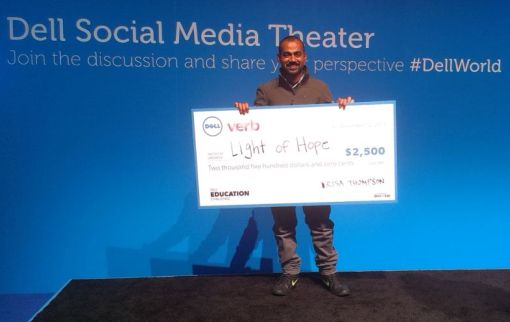
During his master's thesis, Bhuiyan returned to Bangladesh to implement the project, setting up two such solutions in schools in Kishoreganj and Chittagong. This hands-on experience provided invaluable insights into the challenges and opportunities in Bangladesh's education sector.
After graduation, Bhuiyan and his friends – Maruf, Shoeb, and Momel – returned to Bangladesh from different corners of the world, armed with advanced degrees and a shared vision. They decided to formalize their efforts, officially founding LoH.
Initially conceived as a charity, LoH's journey took a significant turn when the founders decided to pivot to a for-profit business model. "We started by simply having a registration at the Joint Stock as a partnership company with a trade license," Bhuiyan recalls. "In 2017, we registered as a Limited Company."
In the early days, none of the founders worked full-time on the project. However, they soon realized that to make a real impact, at least one of them needed to dedicate fully to building the organization. "Initially, none of us worked full-time," Bhuiyan recalls. "After a while, we realized that it would not go anywhere if one of us, at least, spent full-time in building the organization."
In a leap of faith reminiscent of many startup stories, Bhuiyan left his job at BRAC to work full-time at LoH, with personal savings providing a runway of just six months.
"When we started, we did not have a business model in place," Bhuiyan admits. "The challenge for me was to figure something out within those six months."
This period of intense focus and bootstrapping led to crucial decisions that would shape the company's future. The team decided to concentrate on primary-level education and to prioritize initiatives that would provide the highest return on investment in terms of educational outcomes.
"There are a lot of things you can do to improve the quality of education in Bangladesh," Bhuiyan explains. "But from an economic point of view, if you have 100 taka (meaning limited resources), where do you invest to get the highest impact?"
This laser focus on impact and efficiency led to the creation of the Porua project, where LoH set up small school libraries with age-appropriate storybooks for just $100. These libraries, stocked with a mix of old and new books collected from various sources, aimed to improve the reading skills, imagination, and creativity of 300-400 children per school.
Bhuiyan recalls those early days with a mixture of nostalgia and pride: "I can recall myself carrying a 10-12 kg weight sack full of old and new books to set up a library in some rural remote school."
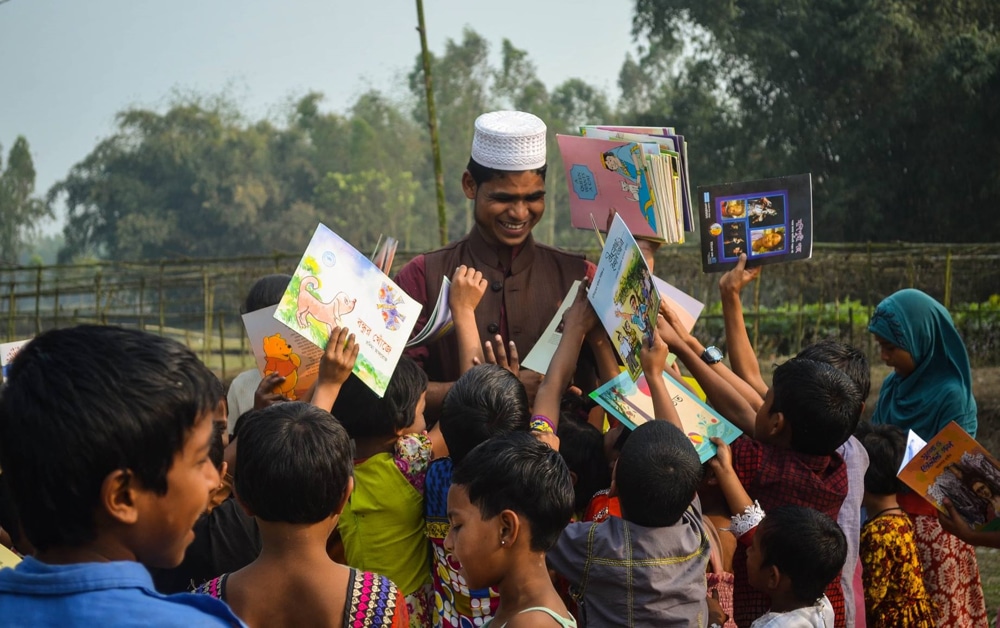
As the company grew, so did its ambitions. LoH expanded beyond libraries, developing puppet shows to create awareness about environmental issues, crafting innovative teaching methodologies, and gradually building what would become an ecosystem of educational products and services.
The journey from a solar-powered classroom to an educational ecosystem was not linear. It involved countless iterations, failures, and moments of doubt. But with each challenge, team LoH's resolve strengthened, and its vision became clearer.
Light of Hope's origin story is a reminder that sometimes, the most impactful businesses are born not from a desire for profit, but from a genuine passion to solve a pressing problem.
As Bhuiyan puts it, "We wanted each stage of our business to work towards making the playing field a bit more even for every child in Bangladesh."
Light of Hope is built on a simple yet profound thesis that the skills children need for the future are fundamentally different from what traditional education systems provide. Traditional schools focus on curriculum, LoH targets skills that are crucial for the future.
LoH's educational philosophy centers on four key areas:
"We are perhaps the only company that is focused on skills that kids need to have to be future-ready," Bhuiyan asserts. "We don't focus on today’s school curriculum, a model to produce workers to feed the industrial revolution that happened a few hundred years ago."
This approach sets LoH apart in a crowded educational market. By creating a "parallel but complementary education system," the company has carved out a unique niche that distinguishes it from both traditional schools and other edtech startups.
LoH's thesis is particularly relevant in today's rapidly evolving world, where technological advancements and shifting roles of humans in society and job markets demand a new skill set.
However, what truly sets LoH apart is its focus on timeless human capabilities. As Bhuiyan emphasizes, "Humans needed to be innovative, creative and empathic to grow as a civilization thousands of years ago. It will be the same in the future too. The west invented a schooling system to fulfill its purpose then, ignoring the fundamental way education and learning should be provided to students. Tools and technologies will change, but the ability to think creatively and solve-problems will always remain in demand.” As the pace of change accelerates, the ability to think creatively, solve problems, and adapt becomes increasingly valuable, ensuring that LoH's thesis remains relevant well into the future.
This focus on enduring skills allows LoH to create "evergreen" content that remains relevant for years if not decades. It's a strategy that not only contributes to the company's sustainability but also positions it well for potential international expansion.
By developing products and content that remain relevant for years, Light of Hope has built a foundation that can support the company even during periods of limited new development.
LoH has also developed a distinctive approach to teaching and developing educational materials that make it stand out:
1. Understanding Natural Learning Process: Designs products based on how children naturally learn, exemplified by its adoption of methods like pictorial-based learning to teach language and creativity at the same time.
2. Joyful Learning: Design and deliver learning that is engaging and fun for children. For example, teaching problem-solving through crafting.
3. Character-Based Teaching: Develops relatable characters to drive behavior change among children to help others, think creatively, and be empathic to people and nature.
4. Universal Content: Creates content, and stories that have universal appeal and acceptance in societies globally.
5. Integrated Ecosystem: Reinforces educational and behavior change messages through multiple touchpoints in a child's life.
In a world obsessed with rapid change, LoH takes a contrarian stance by focusing on enduring principles. This approach not only sets the company apart but also positions it as a potential leader in educational reform for the developing world and beyond.
As the company evolved, LoH quickly realized that a single product or service wouldn't suffice to achieve its ambitious goals. Instead, it has built an interconnected educational ecosystem designed to touch every aspect of a child's learning environment. This ecosystem comprises several key ventures:
Goofi: A media franchise producing books, toys, TV content, and merchandise.
Kids Time: After-school programs centered on creativity and problem-solving.
Teachers' Time: Training programs for educators and parents.
ToguMogu: A separate company integrated into the LoH ecosystem.
Porua Project: An initiative creating school libraries across Bangladesh.
Each of these initiatives reinforces the others, creating a holistic learning environment that impacts every aspect of a child's educational journey.
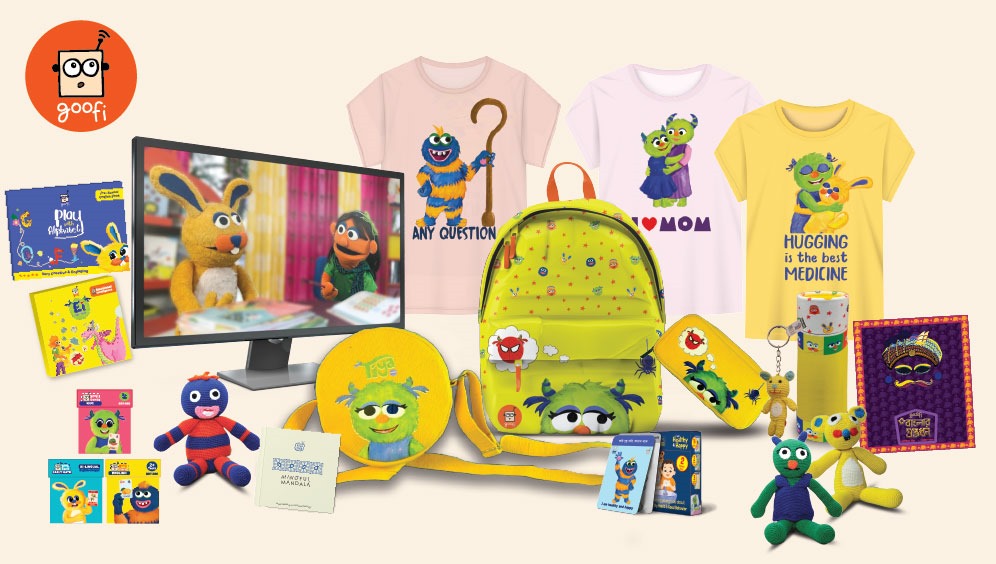
Bhuiyan explains the strategy behind this ecosystem: "We thought if we truly want to change the lives of these kids, we have to create an ecosystem through which we can meet these kids at all these touch points. So we created content, we created books, we created characters, we created schools to teach creativity and problem-solving that traditional schools don't offer, then we thought still kids spend the most time in school with teachers and if we could train teachers, it can be a game changer for us, so we created teachers time to educate teachers, and then we want schools to use our books."
This ecosystem approach, while powerful, is not without challenges. Building multiple ventures simultaneously has slowed the company's growth in any single area. However, it has also created a resilient business model that survived many challenges when many edtech startups faltered.
As LoH matures, Bhuiyan has identified four key pillars that will drive the company's future growth.
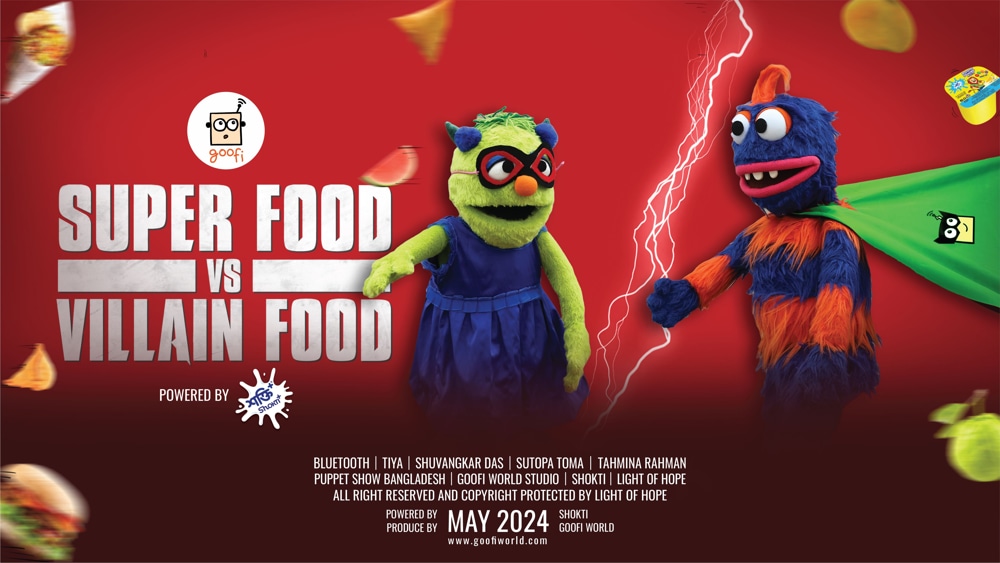
By focusing on these areas, Light of Hope aims to position itself as a central player in the broader ecosystem of children's education and development. These pillars create a flywheel effect, with each element reinforcing and amplifying the others.
Bhuyian describes this strategy: "We thought about various options to reach children. We could build apps or digital platforms and so on. But we realized that building an app wouldn't solve the problem. Instead, we wanted to build touchpoints across the lifestyle of a kid."
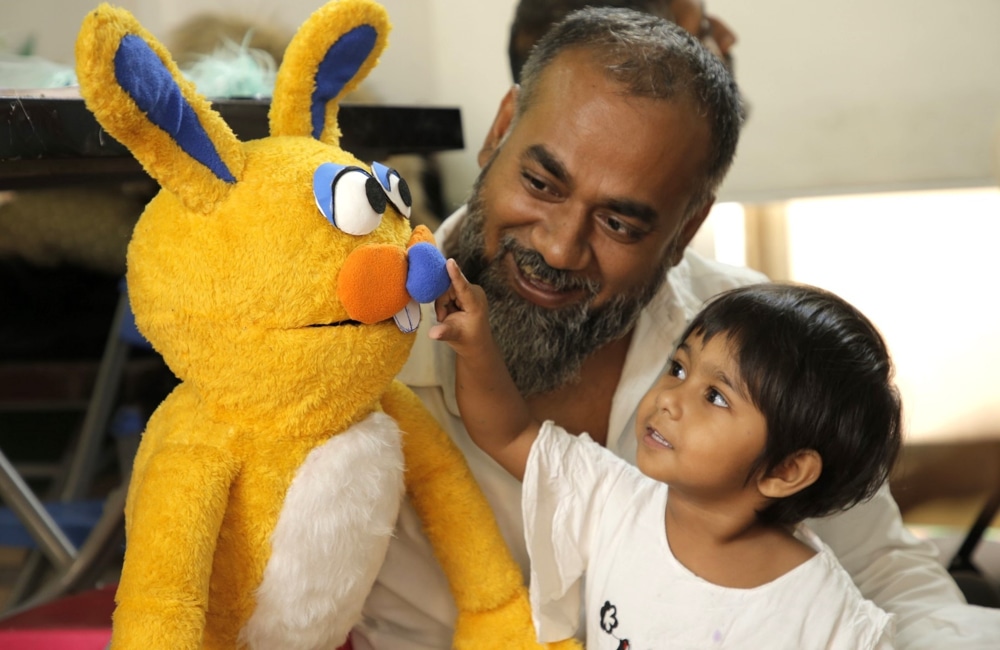
The ecosystem and the four pillars create a self-reinforcing cycle. As one pillar grows, it supports the growth of the others. For example, as the data pillar expands, it allows for better targeting and product development, which in turn supports retail distribution and the creation of more relevant IPs.
This integrated approach positions Light of Hope to potentially reach its ambitious goal of impacting every child in Bangladesh, either directly or indirectly, with future-ready skills and education.
One of the most intriguing aspects of LoH's strategy is its modular approach to education. Rather than trying to replace the entire educational system, LoH is creating complementary modules that can be integrated into existing structures. This strategy allows for rapid iteration and experimentation, enabling LoH to refine its offerings based on real-world feedback.
This modular approach also makes LoH's model potentially exportable to other developing countries facing similar educational challenges. It also makes collaboration with established education players easier. As the company refines its methodology in Bangladesh, it could well become a blueprint for educational reform across the Global South.
Light of Hope (LoH) is positioning itself as an "Aggregator of Learning," aiming to become the central hub through which children, parents, and educators engage with future-focused learning.
This strategy is particularly potent in Bangladesh, where traditional educational institutions often struggle to prepare students for the rapidly evolving global economy. By creating an ecosystem of interconnected educational products and services, LoH is positioning itself as the default platform for future-focused learning.
LoH's business model is multifaceted, generating revenue through multiple channels:
This diversified approach has proven crucial to the company's survival and growth. As Bhuiyan notes, "We survived COVID-19 because we had diversified revenue streams from multiple ventures. If we had only one venture, we wouldn't be here today."
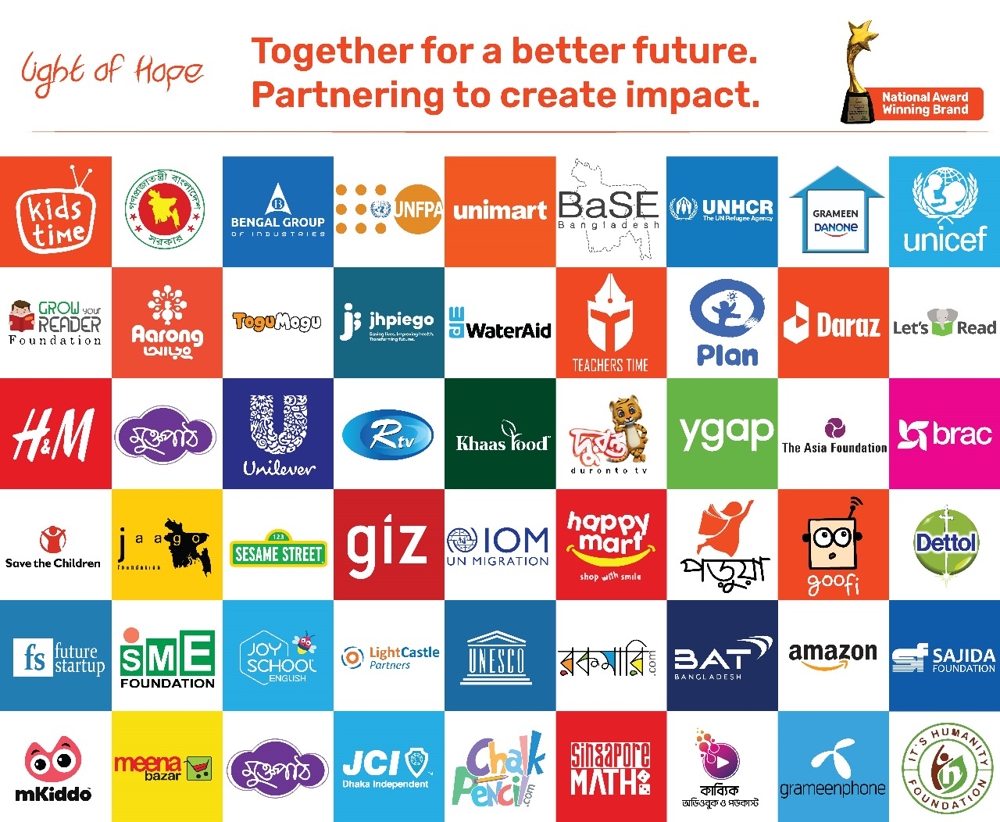
Despite its ambitious goals and diverse offerings, Light of Hope maintains a lean operation. With a team of just 60 people, the company has managed to reach millions of children across Bangladesh. This efficiency is achieved through:
For instance:
LoH's strategy stands out in several key ways. Unlike traditional education companies that focus on specific subjects or age groups, LoH has created an interconnected ecosystem of educational ventures. This holistic approach allows the company to impact a child's development at multiple touchpoints throughout their early life.
Secondly, while many education companies concentrate on curriculum subjects, LoH emphasizes skills that are crucial for future success but often overlooked in traditional education systems. This makes its solutions indispensable.
To improve the effectiveness of its teachings, LoH uses its popular characters to convey educational and behavioral change messages, making learning more engaging and memorable for children. The company designs its content with global relevance while rooting its learning philosophy of the Global South.
Finally, from books and toys to after-school programs and teacher training, LoH leverages various channels to reach children, parents, and educators. This makes competing with LoH that much more difficult for any other competing players.
As Light of Hope looks to the future, several opportunities present themselves:
National Expansion: LoH aims to be present "everywhere" in Bangladesh within the next five years, contributing to every child's skill development.
International Markets: With products already on platforms like Amazon and online courses reaching parents in multiple countries, LoH is poised for international expansion.
Partnerships and Collaborations: Achieving the company's ambitious goals will require cooperation from the government, private sector, and development organizations.
Product Diversification: Each of LoH's current ventures has the potential to spawn multiple sub-ventures, creating opportunities for further growth and specialization.
Technology Integration: As the company grows, there may be opportunities to leverage technology more fully, particularly in data analytics and personalized learning.
Despite its innovative approach, LoH faces significant challenges.
Scaling a high-touch, high-quality educational model while maintaining effectiveness is a formidable task. Moreover, the company must navigate the complex regulatory landscape of education, which often favors established institutions and traditional methodologies.
Perhaps the most significant challenge, however, is cultural. Convincing parents, educators, and policymakers of the value of "future skills" in a society that has long prioritized rote learning and standardized testing will require persistent advocacy and demonstrable results.
Finally, as the edtech sector grows, LoH will need to continually innovate to maintain its competitive edge.
If successful, LoH's model could have far-reaching implications for education globally.
It could provide valuable insights for developed economies grappling with preparing students for an increasingly automated and AI-driven world.
By demonstrating that a for-profit company can effectively deliver high-quality, future-focused education at scale, LoH could catalyze a shift in how we think about the role of private enterprise in education.
LoH represents a new model of educational company – one that blends social impact with business sustainability, and traditional learning with future-focused skills. Its ecosystem approach and focus on holistic child development set it apart in a crowded edtech landscape.
As the company continues to grow and evolve, it has the potential to significantly impact not just individual children, but the entire educational landscape of Bangladesh and beyond.
Looking ahead, Bhuiyan's vision for LoH is both ambitious and long-term. "We would love to build an enduring organization in 20 years, something like Disney," he says. This vision includes not just market dominance, but also the development of a second generation of leaders within LoH who can carry the mission forward.
In a country where educational reform has long been a challenge, LoH offers a glimpse of what's possible when innovation, passion, and strategic thinking converge. As Bhuiyan and his team continue to build their educational ecosystem, they're not just hoping for a brighter future – they're actively creating it, one child at a time.
The ultimate test for LoH will be whether it can truly become the "Disney of education"—a company that not only entertains and educates but shapes the very way we think about learning and skills development. If successful, it could well be that the future of global education is being written not in Silicon Valley or London, but in the bustling streets of Dhaka.
Cover photo: Light of Hope has built an Ecosystem of Ventures to prepare kids with skills for the future world
